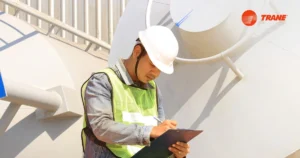Global industries are operating in a climate of rapid expansion, shifting demand, and rising operational pressures. From technology to healthcare, manufacturing to logistics, organizations need solutions that are not only reliable but also flexible enough to scale with changing requirements. In this dynamic environment, the ability to secure a chiller rental has transformed from a temporary fix into a long-term strategic advantage. By offering reliability, financial agility, and technical sophistication, rental solutions help enterprises sustain performance in the face of uncertainty.
The Growing Need for Flexible Cooling
Cooling has become central to business continuity across sectors. Data centers must operate without interruption, healthcare facilities need precise climate control, and industrial plants depend on consistent cooling to protect both products and equipment. Yet, purchasing and installing permanent systems often requires significant capital expenditure, as well as long planning and deployment cycles. For global businesses, particularly those navigating fluctuating markets or expansion into new regions, flexibility is critical. Rental systems offer that agility, enabling organizations to adapt quickly while maintaining operational excellence.
Why Rental Models Appeal to Executives
The economic case for rentals is compelling. Instead of tying up resources in large, upfront investments, businesses can preserve cash flow and direct capital toward growth priorities. This approach also removes the burden of long-term maintenance costs, since most rental solutions come with comprehensive service packages. For decision-makers under pressure to deliver both efficiency and resilience, chiller rental provides the financial and operational flexibility required to remain competitive.
Supporting Global Operations with Speed
Timing is everything in global industries. Sudden surges in demand, seasonal changes, or equipment failures can put tremendous stress on operations. Rental systems can be deployed rapidly, helping businesses respond to emergencies or planned expansions without delays. This responsiveness is particularly critical in industries such as logistics and food distribution, where delays can directly impact customer satisfaction and revenue.
Enhancing Precision in Industrial Applications
Industrial cooling is rarely one-size-fits-all. Factories may require targeted climate control for sensitive production lines, while high-tech industries need specialized systems to maintain narrow temperature tolerances. Rental models provide businesses with access to modern, precisely engineered systems that can be tailored to site-specific requirements. By choosing a flexible model, global organizations secure solutions that align with both current and future needs.
Temporary Air Conditioning for Broader Needs
Cooling demands extend far beyond heavy industry. In many cases, organizations require systems for events, seasonal spikes, or short-term projects. Trane’s temporary air conditioning solutions are designed to address these broader needs. From supporting international exhibitions to stabilizing conditions in retail and hospitality environments, these systems provide comfort and reliability without long-term commitments. Their scalability allows them to be integrated seamlessly into existing operations, ensuring performance without disruption.
Reliability as Risk Management
For global executives, risk management is inseparable from cooling strategy. A failure in temperature control can result in spoiled goods, halted production, or even safety hazards. Rental solutions reduce this risk by ensuring that organizations always have access to high-performance systems backed by expert service. Trane’s rental offerings include installation, monitoring, and maintenance, delivering complete peace of mind that operations will remain stable even during unforeseen challenges.
Sustainability in Rental Cooling
Sustainability is now a global mandate. Investors, governments, and customers alike expect organizations to minimize environmental impact. Rental systems are increasingly being designed with eco-friendly refrigerants, advanced controls, and energy-optimization features. This means businesses can access the latest sustainable technology without waiting for capital cycles to align. By leveraging rentals, companies not only reduce their carbon footprints but also enhance their reputations in international markets.
Case Applications Across Industries
The impact of flexible cooling can be seen in industries worldwide. A leading technology provider in Asia used rental systems to expand its data center capacity quickly during a surge in digital demand. In North America, a healthcare facility secured rentals during a major equipment upgrade, ensuring patient care continued without interruption. Meanwhile, a logistics company in Europe deployed cooling rentals during peak holiday seasons to maintain product quality across its warehouses. Each of these examples highlights how flexibility supports both continuity and growth.
Innovation and the Future of Rental Solutions
The rental model is not static. Digitalization is driving advancements such as remote monitoring, predictive analytics, and smart controls. These innovations allow businesses to track performance in real time, predict maintenance needs, and optimize energy use. For global companies, this means rentals deliver not just flexibility but also cutting-edge technology that strengthens resilience and efficiency across operations.
Closing Thought
Cooling is an essential foundation for global business success. As industries continue to face rising complexity and competitive pressures, access to flexible, reliable, and sustainable systems will define future leaders. By partnering with Trane, companies gain more than equipment — they secure a trusted partner with the expertise to deliver excellence worldwide. With advanced temporary air conditioning solutions, Trane ensures organizations remain adaptable, efficient, and resilient in every environment.




